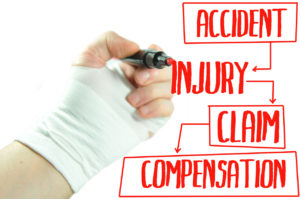
The losses caused by an injury or accident include loss of earnings and income. Personal injury cases include claims for reimbursement of these economic damages.
Generally, you can recover compensation for the following lost earnings:
- The income lost because you could not perform your work duties due to your injuries
- Income for the time missed from work to go to doctor’s appointments or undergo medical treatment for injuries
- Future lost wages if you are unable to work because of a permanent impairment or disability
- Loss of earning capacity because of your injuries or impairments
- Lost benefits, including matching retirement contributions, accrued sick time, and paid vacation time
- Loss of overtime earnings, bonuses, commissions, and other forms of income
Filing a loss of earning and diminished earning capacity claim begins with proving that the other party caused your injury. Next, you must provide evidence proving causation and fault to establish liability.
The second requirement is to prove that your injuries impacted your ability to work. Finally, you must prove the amount of money you could have earned had it not been for the accident or injury.
Filing a Claim for Your Loss of Earnings

A loss of earnings claim may involve past and current lost wages and the future income you will not earn because of a permanent disability or impairment.
The first step is to prove how much money you have lost to date because of a personal injury.
First, you need medical proof that your injuries prevented you from working. Your medical records and statements from your physicians may be sufficient to prove you could not work. However, if the insurance company disputes your claim, you may need expert testimony to support your argument.
Next, you need proof of the amount of money you lost because of the injury. Financial records, such as tax returns, pay stubs, income statements, and evidence of past earnings can help prove how much you could have earned had you been able to work during specific periods of time.
Finally, you need a statement from your employer confirming the dates you missed work and your pay rate for those periods. Calculating loss of benefits, overtime, bonuses, and commissions can be more complicated than calculating the wages you lost when you were out of work.
Filing a Claim for Your Future Lost Wages and Diminished Earning Capacity
If your injury prevents you from returning to work or decreases the amount you can earn in the future, you may be entitled to compensation for future losses. However, proving the loss of future earnings and lost earning capacity can be challenging.
You must have medical evidence proving that your injury resulted in a disability or impairment that prevents you from returning to your job. If you cannot perform any work, the claim is for all lost wages you would have earned had you not been injured.
However, if the injury allows you to work but you cannot earn as much as you did before the injury, your claim is for diminished earning capacity. In either case, your claim can be difficult to prove.
Generally, you need vocational experts and other expert witnesses to explain how your injuries prevent you from performing specific tasks related to your job or other jobs. Then, you need to prove how much money you would have earned based on future income projections. Finally, you must establish how much income you can earn (if any) given the limitations caused by your injuries.
Factors to Consider When Valuing Your Future Lost Wages/Diminished Earning Capacity Damages
Factors and information that experts use to calculate the value of future lost wages and diminished earning capacity include:
- Your current age and overall health
- Your work history, including education, experience, and skills
- Your life expectancy and your anticipated retirement age
- The outlook for your chosen career or the type of work you perform
- The estimated rate of inflation
- Other jobs you can perform and the pay rate for those jobs
- The type and severity of your disability or impairment
- The amount you could have been expected to earn had all other factors remained the same and you had not been injured
Economists, vocational experts, and financial professionals use this information and other data to calculate estimates for your future income. Then, subtract the anticipated income you are expected to earn given your limitations and restrictions, and the result is the value of your claim.
Expect that you will need to hire expert witnesses to prove your case. The insurance company generally has its own experts to refute the evidence you present. Therefore, trying to settle a claim without a lawyer is not advisable.
Contact a Boca Raton Personal Injury Lawyer To Discuss Your Loss of Earnings/Diminished Earning Capacity
Loss of income after an accident or injury can cause significant financial stress. We want to help you recover the compensation you deserve for all damages. Call Hollander Law Firm Accident Injury Lawyers at (561) 347-7770 to schedule a free consultation with an experienced Boca Raton personal injury attorney to discuss your loss of earnings/diminished earning capacity and other damages you may be able to recover.
